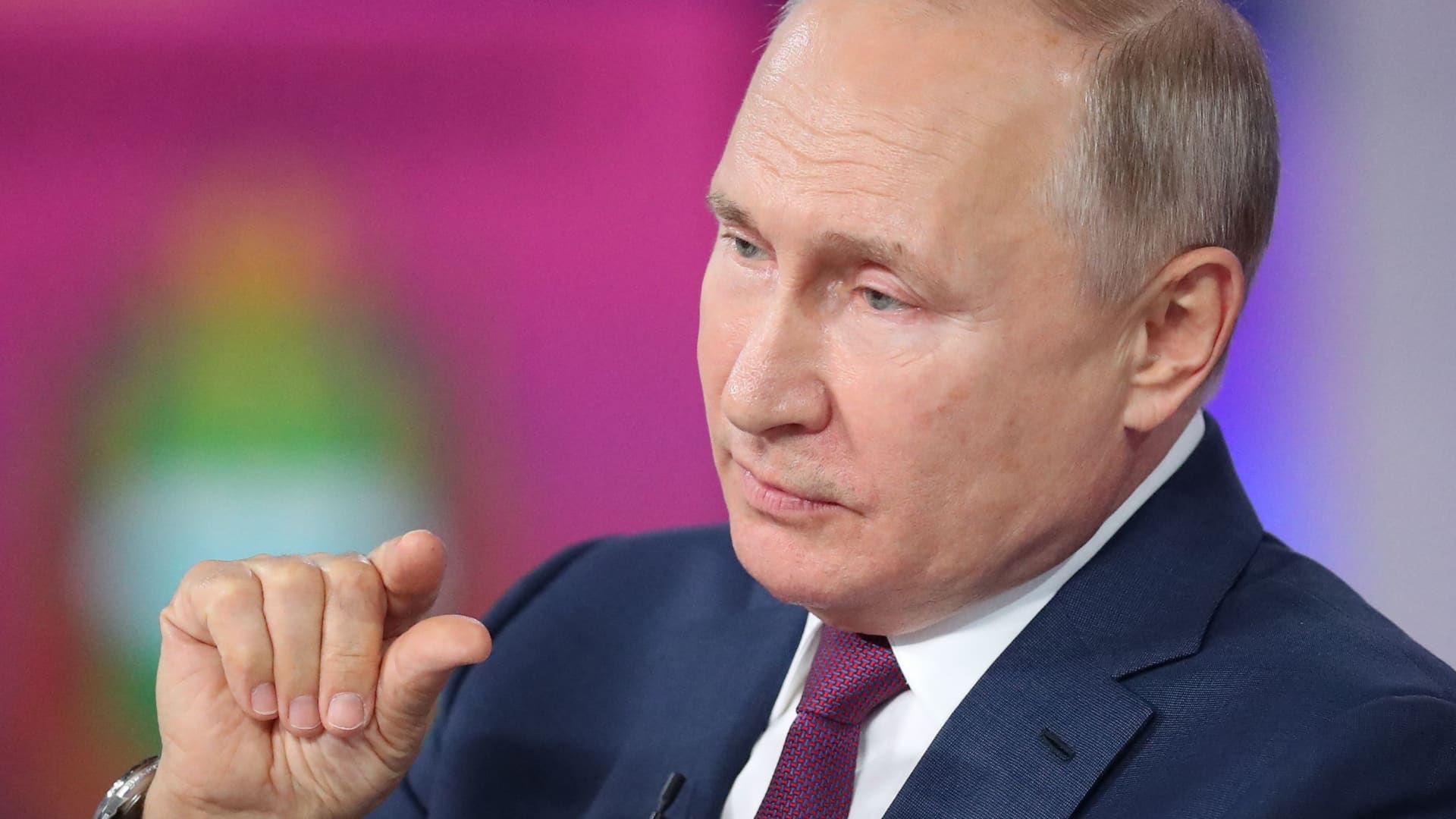Russian President Vladimir Putin attends an annual televised phone-in with the country's citizens called "Direct Line with Vladimir Putin" at the Moscow World Trade Center studio in Moscow on June 30, 2021.
Sergei Savostyanov Afp | Getty Images
Russian President Vladimir Putin on Thursday said that inflation is a problem facing Russia, and that the country's economy is overheating.
"There are some issues here, namely inflation, a certain overheating of the economy, and the government and the central bank already have the task of lowering the tempo," Putin said at his annual Q&A session " Direct Line” with Russian citizens on Thursday. , in comments translated by Reuters.
Russia's consumer price index hit 8.9% in November year-on-year, up from 8.5% in October. The increase was mainly driven by the increase in food prices, with the cost of milk and milk products rising this year.
A weaker ruble — following new US sanctions in November — also boosted inflation, raising the cost of imports into Russia. A massive increase in military spending has meanwhile caused shortages of labour, supply and production elsewhere, with workers demanding higher wages.
"Of course, inflation is such an alarming sign," Putin noted in further comments reported by Interfax and translated by Google.
"Just yesterday, when I was preparing for today's activity, I spoke with the chairperson of the Central Bank, Elvira (Nabiullina) who told me that it was already somewhere around 9.3%. But wages grew by 9% in real terms, I want to emphasize this - in real terms minus inflation - and the disposable income of the population also grew," he said.
Russia's central bank is expected to raise its benchmark interest rate by 200 basis points to 23% — the highest level in ten yearsUp from the 20% seen during the invasion of Ukraine in 2022 — on Friday, amid stubbornly high inflation in the war-centric economy.
Putin blamed international sanctions for the price rises, but also appeared to criticize the central bank, saying experts suggested other tools could have been used to tame inflation, beyond interest rates.
"Of course, external restrictions, sanctions, etc. also have an impact to a certain extent. They are not of main importance, but they are still reflected in one way or another (in the increase in prices), because they make logistics more expensive," said the - head of state, according to comments reported by the Tass news agency and translated by Google. "But there are also subjects (factors), and there are our shortcomings."
"We should have taken these decisions in time. This is an unpleasant and bad thing, in fact, the increase in prices, but I hope that, in general, by keeping the macroeconomic indicators, we will cope with this too," Putin said.
He added that the Russian government and central bank were tasked with delivering a "soft landing" of the economy, which he insisted was performing well overall and could achieve growth of 3.9-4% this year the year.
The International Monetary Fund predicts that Russia will achieve growth of 3.6% this year, before decelerating to 1.3% growth in 2025.
The "sharp slowdown," the IMF said, is expected "as private consumption and investment slow amid reduced labor market tightness and slower wage growth."
On Thursday, Putin predicted that Russia's economic growth should be 2-2.5% next year.
